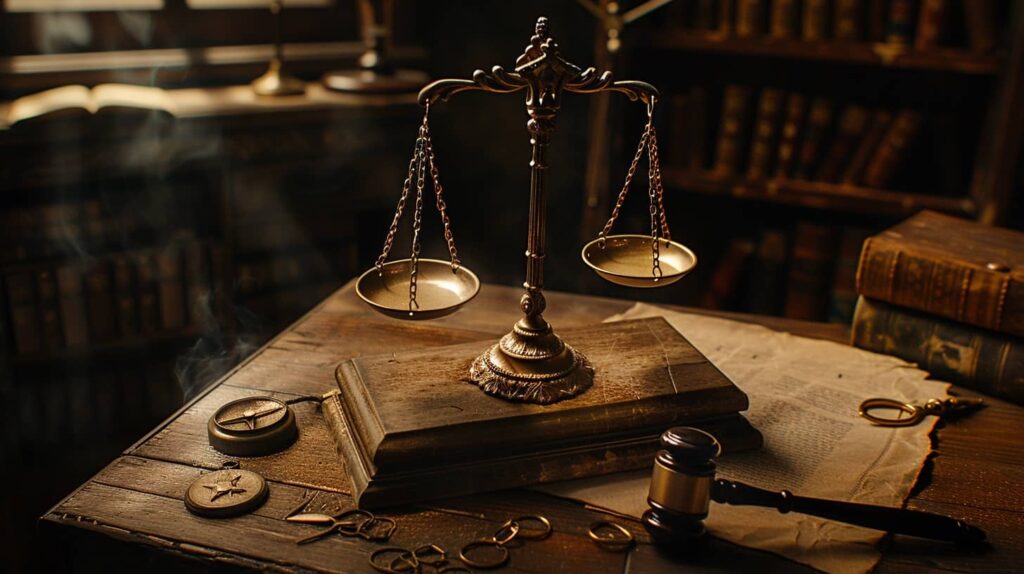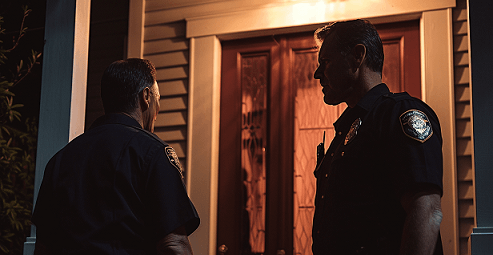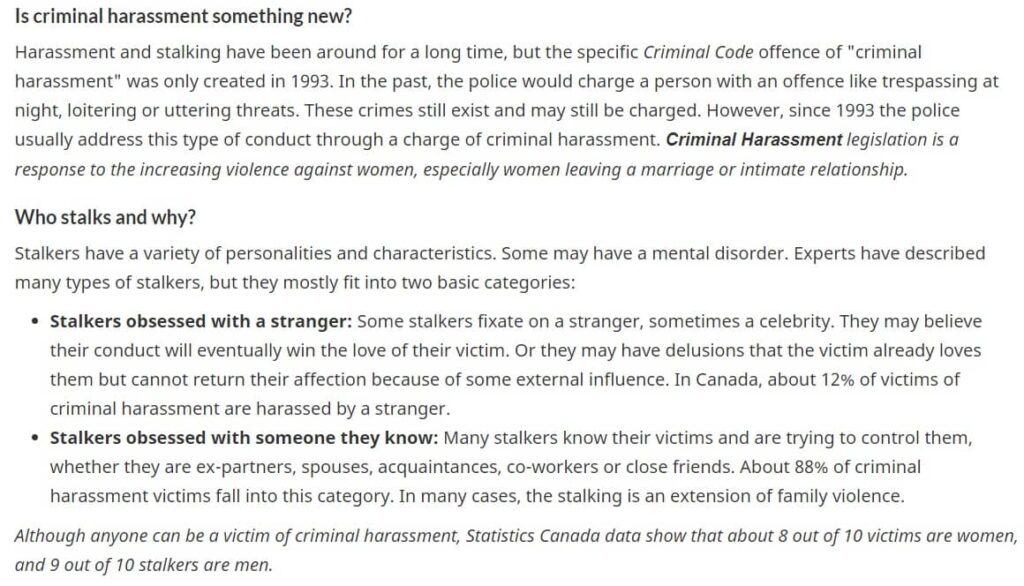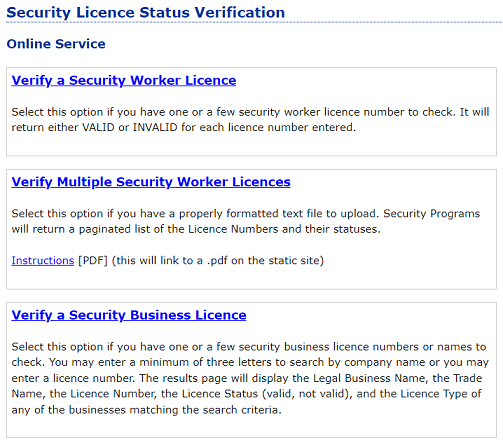
Risks of Hiring a Private Investigator
You might be at a point where you’re considering hiring a private investigator. You may be looking for answers that seem out of reach or a personal or business matter that needs a closer look. It’s a big step, and like you, many people turn to private investigators when other methods have come up short. But diving into the world of private investigation has its risks. It’s important to understand both the potential benefits and the pitfalls.
Hiring a private investigator can bring up images of detective novels and thrilling movie plots. But real life is a bit different. In reality, the work of a private investigator is bound by legal and ethical rules. It’s not all about shadowy figures and dramatic reveals. Instead, it involves careful, systematic research and surveillance within the confines of the law.
You might be worried about what hiring a private investigator entails. Questions about legality, costs, and the possibility of things going wrong might be swirling in your head. And that’s perfectly normal. You’re not just spending money but also placing a part of your personal or professional life in someone else’s hands.
This article will walk you through the risks of hiring a private investigator. From the legal implications and the potential for unexpected costs to the emotional toll, it can take on you if the case involves a personal matter. By providing a clear, honest look at what hiring a private investigator involves, you can make an informed decision that’s right for you.
- Risks of Hiring a Private Investigator
- Risks Involving Legal and Ethical Boundaries
- The Risk of Overstepping Legal Limits
- Financial Implications and Risks of Hidden Costs
- The Risk of Inaccurate Information
- Risks of Emotional Strain in Personal Investigations
- The Risk of Detection
- Risks of Engaging Unlicensed Individuals for Investigative Work
- The Risk of Unclear Outcomes
- Mitigating Potential Risks
- Choosing the Right Private Investigator
- Are the Risks of Hiring a Private Investigator Worth it?
- About the Author
Risks Involving Legal and Ethical Boundaries

Knowing the rules they must follow when hiring a private investigator is essential. Like any professional, private investigators must follow laws and ethical guidelines. These aren’t just suggestions but strict rules that keep everything above board.
First off, privacy laws are a big deal in the world of private investigation. You might want answers, but there’s a line that can’t be crossed. For example, a private investigator can’t tap into someone’s phone calls or snoop through private emails without permission. That’s illegal. They also can’t break into someone’s house or pretend to be someone in a position of authority to get information. These actions break privacy laws and can get you and the investigator in serious trouble.
Ethics come into play, too. Ethical private investigators won’t lie about what they can do. They won’t promise to get you information by any means necessary. Instead, they’ll explain what’s possible within the law. They know breaking the rules could ruin their reputation and harm their clients. So, they stick to methods that are legal and moral.
You might wonder, “How do I know if an investigator follows these laws and ethics?” The key is to ask questions. A good private investigator will be open about how they work. They’ll tell you what they can and can’t do legally. They won’t make promises they can’t keep.
Hiring a private investigator is about getting answers within the framework of the law. It’s not about bending the rules to obtain what you want. Knowing and respecting these legal and ethical boundaries is crucial for you and the investigator. It ensures the investigation is legitimate and protects you from potential legal consequences.
The Risk of Overstepping Legal Limits
Hiring a private investigator means you’re looking for truth or evidence. But there’s a risk: crossing legal lines. Let’s talk about what happens if an investigator goes too far.
Firstly, private investigators can’t trespass. They can’t enter someone’s property without permission. If they do, they’re breaking the law. And if you hired them, this could mean trouble for you, too. Imagine someone sneaking into a backyard or an office after hours. It’s not just wrong; it’s illegal.
Then there’s the issue of spying on people without their knowledge. Sure, investigators can watch someone in public. But they can’t record private conversations without consent. That’s wiretapping, and it’s against the law. If caught, the investigator could face charges, and so could you for being involved.
Impersonation is another big no-no. An investigator pretending to be someone else, like a police officer or a utility worker, to get information is a serious offense. It’s not just dishonest; it’s criminal.
You might think, “But I need evidence for my situation.” That is understandable, but illegal actions taint that evidence. Courts won’t accept information gathered unlawfully. So, legal action against you and the investigator is risky, and the evidence you were hoping for becomes useless.
Here’s the bottom line: Ensure your investigator knows and follows the law. Ask them about their methods. A professional investigator will be upfront about what they can legally do. They’ll find the evidence you need without crossing legal boundaries.
Remember, the goal is to solve your problem, not create new ones with legal troubles. Staying within legal limits protects you, the investigation, and the integrity of the evidence.
Financial Implications and Risks of Hidden Costs

When you decide to hire a private investigator, you’re also opening your wallet. It’s important to talk about money and what this could mean for you.
First, private investigators usually charge by the hour. Think of it like hiring a plumber or a tutor. They have a rate for each hour they work for you. This rate can change based on where you are, the investigator’s experience, and what you’re asking them to do. Before you agree to anything, ask them about their hourly rate. This way, you won’t be shocked when the bill comes.
The hourly rate usually is only part of the story. There may also be other costs. Investigators might need to travel, buy special equipment, or access specific databases for your case. These expenses add to your bill. An ethical investigator will tell you about these potential costs upfront. But sometimes, unexpected things come up, and the investigator must spend money to gather evidence for your case.
Now, here’s where it gets tricky. Some investigators might not tell you about every little cost at the start. You think you’re paying one amount, and then suddenly, there are extra charges. These hidden fees can be for anything from extra hours worked to emergency expenses that weren’t planned.
To protect yourself, ask for a clear outline of the costs. This includes the hourly rate and any other fees you might have to pay. Also, talk about how they’ll handle surprises. If something unexpected comes up, how will they let you know? Will they ask you before spending more money?
Ultimately, you want to make sure your investment in your case is worth it. By understanding the costs and how they work, you can avoid being surprised by a large bill later. Clear communication about money from the start can save you a lot of headaches.
The Risk of Inaccurate Information
When you hire a private investigator, you’re looking for the truth. But you may not always get accurate information. Let’s talk about why this happens and what it means for you.
First, it’s important to recognize that private investigators are prone to errors like anyone else. They could overlook an important piece of information or misread a situation. For instance, if a PI is conducting surveillance for you, they might misjudge what they’re observing. They could perceive someone’s actions as suspicious when they’re innocent, potentially leading to incorrect assumptions.
Then there’s the chance of getting misled. An investigator might pursue leads that end up being dead ends or being led astray by inaccurate data. It’s akin to assembling a puzzle where the pieces don’t match up. The final picture might be different from what you expected.
Also, there’s a darker side to consider. Not every investigator plays by the rules. A few might even make up information to keep you happy or to make it seem like they’re doing a good job. It’s rare, but it happens. This is why choosing the right investigator is so important.
So, what can you do? Ask your investigator how they check their facts. A good investigator double-checks their information. They look at everything from multiple angles to make sure they’re accurate. They should be able to explain how they verify what they find.
The goal of hiring an investigator is to get clear answers. If something seems off, feel free to ask questions. After all, it’s the truth you’re after.
Risks of Emotional Strain in Personal Investigations

Engaging a private investigator for a personal issue, like a case of suspected infidelity, can take you on an emotional journey. In these situations, it’s not solely about uncovering the truth; it’s equally about handling the emotions involved.
First, there’s the stress of not knowing. You’re hiring someone to uncover something hidden. Waiting for answers can be challenging. Every phone call or email from the investigator might make your heart race. You might hope for good news but also fear the worst. It’s like waiting for a test result in school, where the outcome can change your life.
Then, there’s the impact of the information you receive. Finding out the truth can be a relief but also hurt. For example, the truth might damage your relationship if you’re investigating a suspicion about someone close to you. It’s like finding a piece of a puzzle that doesn’t fit where you hoped it would. You’re left trying to figure out what to do next.
Also, consider the strain of secrecy. You might be unable to tell anyone about the investigation, not even friends or family. Carrying this secret can feel lonely and heavy. It’s like carrying a large backpack you can’t put down or share with anyone else.
Lastly, there’s the fear of things going wrong. What if the investigation makes things worse? What if the person you’re investigating finds out? These worries can add to your stress, making the process even harder.
So, what can you do? It’s essential to take care of your emotional well-being. It’s okay to feel stressed or upset. Talk to someone you trust about your feelings, even if you can’t share all the details.
Seeking the truth is brave, but it’s also okay to acknowledge the emotional toll it can take.
The Risk of Detection

When you hire a private investigator, there’s always a chance they might get caught. This is something you need to consider.
First, imagine your investigator is following someone or watching a place for you. If they’re not careful, they could get spotted. The person being investigated might confront the investigator or even call the police.
While a licensed private investigator isn’t required to reveal investigation details, the person under surveillance might guess you’re the one who hired them. This situation could result in uncomfortable or heated exchanges. Suddenly, you find yourself in a difficult position, attempting to justify your actions.
If the subject realizes they’re under surveillance, it can jeopardize the investigation. Once aware of being observed, they might alter their actions. This behavior change can make uncovering the information you initially sought more challenging. Surveillance is most effective when the individual is unaware they’re being watched.
Plus, there’s the legal side of things. You might get dragged into it if the investigator did something wrong, like trespassing. This could mean legal trouble for you, not just the investigator.
So, what can you do? Ensure the investigator is licensed and verify their qualifications, particularly for surveillance. Inquire about the years of experience of the private investigator assigned to your case. It typically requires numerous years and many rookie errors before an investigator becomes adept enough to remain undetected and manage complex scenarios while efficiently gathering useful evidence.
The goal is to get the information you need without causing more problems. An experienced investigator can make all the difference in keeping things smooth and under the radar.
Risks of Engaging Unlicensed Individuals for Investigative Work

Deciding to investigate a matter personally or through someone you know rather than hiring a professional can lead to complications and legal issues.
Unlicensed individuals lack the formal training, certification, and adherence to professional standards that licensed investigators possess. It’s like choosing a pilot who has never flown a plane before. You’re left unsure if they can successfully navigate and land safely.
Opting for unlicensed individuals due to perceived cost savings can have serious repercussions. Their unfamiliarity with legal boundaries could result in severe consequences, including harassment or stalking charges.
For instance, In 1993, the government of BC escalated the offense of harassment and stalking from a misdemeanor, akin to trespassing, to a criminal code offense in response to rising violence against women, particularly those leaving a marriage or intimate relationship. This historical context underscores the gravity of engaging in or commissioning surveillance without understanding the legal ramifications.

Employing unlicensed individuals might lead to the use of dubious methods for information gathering, such as unauthorized entry or impersonation. Being implicated in such actions due to association could liken you to an unwitting accomplice in a vehicle where the driver engages in reckless behavior.
To mitigate these risks, ensure any investigative work is conducted by or under the guidance of licensed professionals. Verifying licenses and credentials, even through online checks such as the government of BC security license status verification, is important to confirm legitimacy and professionalism. Genuine experts understand the importance of such scrutiny and welcome it as part of establishing trust.

In essence, seeking investigative assistance should alleviate concerns, not exacerbate them. Ensuring qualified individuals conduct any investigation within legal and ethical boundaries is paramount to avoiding unintended and potentially severe legal consequences.
The Risk of Unclear Outcomes
Hiring a private investigator doesn’t always mean getting the answers you expected. Sometimes, the investigation findings prove the opposite or the outcome is inconclusive.
Imagine you’re trying to solve a mystery but still don’t have all the pieces. You might spend time and money on an investigation, only to discover that the truth is still out of reach. It’s like finishing a book and realizing the last page is missing. You’re left with questions and no closure.
Also, the information the investigator finds might differ from what you had hoped for. The findings might not always help your situation. It’s like getting a puzzle piece that doesn’t fit anywhere. You have it, but what do you do with it?
There’s also a chance that the investigation raises more questions than answers. Every new piece of information could lead to another mystery. It’s like going down a rabbit hole where one question leads to another and another.
And sometimes, the truth might be hard to pin down. People’s memories can be unreliable, or the evidence might need clarification. It’s like trying to remember a dream. The more you think about it, the harder it is to recall clearly.
So, how can you deal with these unclear outcomes? Understand that some investigations don’t end with a big reveal, and the results of a case cannot be predetermined. Clarify the scope of the investigation with the private investigator and be prepared for all possibilities.
Hiring a private investigator can help immensely, but it’s not a magic solution. Being realistic about what an investigation can and can’t do will help you avoid disappointment.
Mitigating Potential Risks

After all this, you might have worries about hiring a private investigator. Let’s discuss some of these concerns.
First, you might be scared of breaking the law. It’s a valid worry. A good investigator knows the rules and follows them. They work hard to make sure they stay within all legal lines. It’s like having a guide who knows the path through a thick forest.
Then, there’s the cost. Yes, hiring an investigator can be expensive, depending on the type of case. But think of it as investing in peace of mind. It’s like paying a little extra for a safer, more reliable car. The key is understanding the fees beforehand so there are no surprises.
You might also worry about privacy. What if someone finds out you hired an investigator? Professional investigators take confidentiality seriously and safeguard sensitive information through strict data protection controls.
And what if the investigator gets caught? Again, professionals know how to blend in and gather information without drawing attention. It’s their job to stay unnoticed, like a shadow in the background.
You could be concerned about dealing with unclear outcomes. It’s true; investigations don’t always end with conclusive answers. The information gathered can help you make better decisions, even if inconclusive. It’s like adding a few more pieces to a puzzle, making the overall picture clearer.
Lastly, you might worry about the emotional toll. A good investigator will understand and be there to support you through the process. They’re not just information gatherers; they’re also there to help you navigate the journey.
It’s normal to have concerns. The key is to communicate openly with the investigator you are working with. Ask questions, express your worries, and make sure you’re comfortable with the plan. Your peace of mind is their top priority.
Choosing the Right Private Investigator

Picking the right private investigator is a big deal. It’s like choosing a teammate for an important game. You want someone you can trust and who knows what they’re doing. Let’s review how to find the right person for the job.
First, check if they’re licensed. Just like drivers need a license to drive, investigators need a license to operate. A licensed investigator has met specific standards and knows the rules. It’s your first sign that they’re legit.
Next, ask about their experience. You want someone who has tackled cases like yours before. It’s like picking a soccer player who knows how to score goals, not just someone who likes to watch the game.
Then, talk about their methods. A good investigator will be open about how they work. They won’t promise to break the rules for you. They’ll explain how they can help within the law. It’s like a chef who tells you what’s in your meal—no secret ingredients.
Also, consider their communication skills. You want someone who keeps you in the loop. They should update you regularly and be easy to reach. It’s like having a coach who explains the game plan clearly.
Lastly, trust your gut. After talking to them, do you feel comfortable? Do they seem trustworthy? It’s like making a new friend. You want to feel good about your choice.
Remember, the right investigator can make all the difference. Take your time, ask questions, and ensure you pick someone who fits you and your situation well.
Are the Risks of Hiring a Private Investigator Worth it?
The information unearthed by a skilled investigator can mend relationships, protect assets, or even provide the necessary evidence for legal proceedings. It’s the difference between living in a cloud of doubt and moving forward with certainty.
For businesses, the stakes are equally high. In today’s fast-paced and competitive environment, the insights provided by a private investigator can be a game-changer. Whether vetting potential employees, investigating fraud, or securing proprietary information, the knowledge gained can shield your enterprise from potential threats and losses. It’s not just about solving problems; it’s about pre-emptive protection.
Knowing the potential pitfalls is half the battle. Being aware of the legal boundaries, understanding the financial commitments, and preparing for the emotional toll are crucial steps. And when it comes to the risk of being detected or the chance of unclear outcomes, knowledge, and preparation are your best defense.
Choosing the right investigator is vital. Ensure they’re licensed, experienced, and transparent about how they’ll tackle your case. Good communication is essential. You should feel comfortable and informed every step of the way.
But most importantly, remember why you’re considering this route. You’re looking for answers, peace of mind, or maybe closure. These are significant, life-impacting reasons. Taking your time, asking questions, and weighing your options is okay.
If you decide to go ahead, do so with your eyes open, knowing both the risks and the potential rewards. A good investigator can provide invaluable help, but it’s essential to go into the process informed and prepared.
For a complimentary, obligation-free consultation, please get in touch with us at 604-657-4499, info@shadowinvestigationsltd.ca, or fill out our contact form below with your preferred contact method and a brief overview of what you would like assistance with. We keep all information confidential and only use contact information to respond to inquiries.
"*" indicates required fields
About the Author

